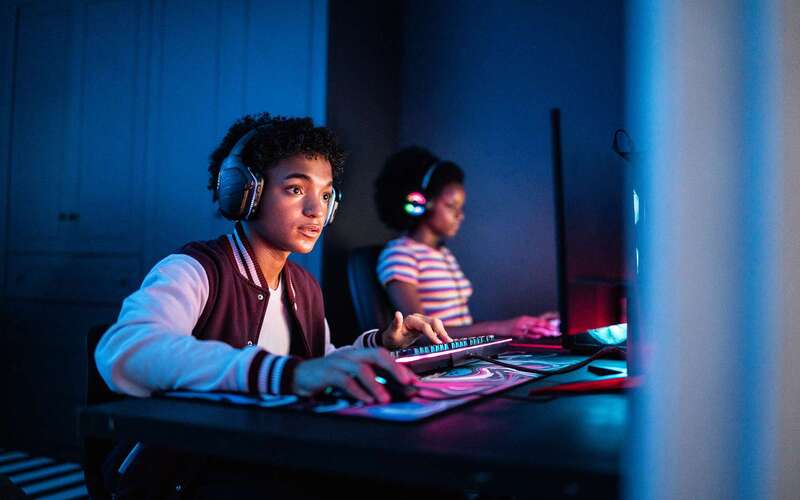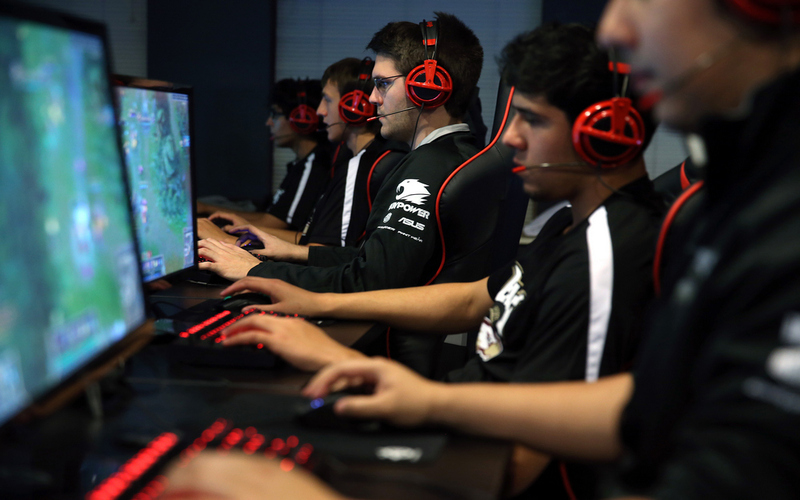
Effective Strategies in Game Translation for the Indonesian Market
Translating games for the Indonesian market requires a special approach that takes into account various aspects of culture, language, and local player preferences. With the increasing popularity of games in Indonesia, game developers must ensure that their content is translated well to enhance the gaming experience and achieve success in this competitive market. This article discusses effective strategies in game translation for the Indonesian market.
The Importance of Accurate Game Translation
Accurate game translation is essential to ensuring that Indonesian players can fully understand and enjoy the game content. Mistakes in translation can cause confusion, reduce the quality of the gaming experience, and even give rise to misunderstandings that can damage the game developer's reputation. Therefore, it is important to use a translator who has a deep understanding of the Indonesian language and culture.
Understanding the Importance of Game Localization
Game localization, or game localization, is not just a translation process. Localization is a comprehensive effort to adapt a game to the cultural needs, languages, and local preferences of various markets. Understanding that culture and preferences vary by region is key to successfully entering the global market. Indonesia has shown its potential as a large gaming market. However, to penetrate the global market, video game localization is important.
Read More: 5 Reasons Why You Need Indonesian Game Translation
Implement a Comprehensive Localization Strategy
An effective localization strategy involves adapting marketing campaigns, products, and services to suit the needs and preferences of target markets. In the context of gaming, this includes localization of in-game content, user guides, product labels, and marketing materials. By implementing a comprehensive localization strategy, gaming businesses can ensure that their products remain relevant and attractive to local audiences in a global marketplace. Game-translation services make it possible to penetrate the global market more effectively through localization.
Using a Professional Translator
Choosing a professional translator who is experienced in game translation is an important first step. Professional translators understand the specific terminology of the gaming world and can ensure that the original context and feel of the game are preserved. They are also more likely to be aware of cultural differences that can influence the way messages are received by Indonesian players.
Adapting Content to Local Culture
One important aspect of translating games for the Indonesian market is adapting the content to local culture. This includes the use of appropriate language, relevant cultural references, and even changes to visual elements if necessary. Strategy games that involve cultural adjustments can help make games more relatable and interesting for Indonesian players. For example, if the game has references to western pop culture, consider replacing them with local references that are more familiar to Indonesian players. This not only increases the player's connection to the game but also shows appreciation for local culture.
Localization Testing
Once the translation is complete, the next important step is to perform localization testing. This testing involves playing the translated version of the game to ensure that all elements work properly and that there are no errors in the text or context. This test must be carried out by players who are native Indonesian speakers to get more accurate and relevant feedback.
Using Modern Translation Technology
Modern technology has provided many tools that can help in the game translation process. Tools such as machine translation and computer-assisted translation (CAT) can improve efficiency and consistency in translation. However, it is important to remember that these tools should be used as an aid and not a replacement for a human translator. A human touch is still necessary to ensure that translations are of high quality and culturally relevant.
Considering Technical Aspects
Game translation must also consider technical aspects such as text length, layout, and compatibility with various devices. Indonesian often has longer words than English, so it is important to ensure that the translated text still fits in the game interface without disrupting the gaming experience. Developers must work closely with translators to address these technical issues.
Effective Communication with the Development Team
Effective communication between the translator and the game development team is essential to ensuring a satisfactory final result. Translators should have access to game documentation, style guides, and other information that can help them understand the context and nuances of the game. Open discussions about the challenges faced and possible solutions are helpful in achieving accurate and high-quality translations.
Adapting Dialogue and Narrative
In-game dialogue and narration are often the most challenging parts of the translation process. The translation must maintain the authenticity of the game's characters and atmosphere while ensuring that the dialogue remains natural in Indonesian. This requires a deep understanding of the characters in the game and how they speak in the context of the story.
Maintain Terminology Consistency
Terminological consistency is very important in game translation. Using different terms for the same thing can confuse players and ruin the gaming experience. Using an agreed-upon glossary of terms and ensuring all translators follow these guidelines can help maintain consistency across games.
Involving Local Communities
Involving local gaming communities in the translation process can provide valuable insight into player preferences and expectations. This community can help identify commonly used terms, relevant cultural references, and provide feedback on translation quality. Game developers can use forums, social media, or beta tests to get input from these communities.
Overcoming Language and Dialect Challenges
Indonesia has many different dialects and language variations, which can add complexity to game translation. While standard Indonesian is widely spoken, some players may be more comfortable with their local dialect. Translators must consider the target audience and may need to adjust translations to accommodate regional language preferences.
Case Study: Successful Game Translation in Indonesia
A successful example of game translation for the Indonesian market is Mobile Legends: Bang Bang. The game has been translated very well, with precise adjustments to dialogue, cultural references, and visual elements. This helped the game become very popular in Indonesia, showing the importance of effective translation strategies.
Increasing Player Engagement with Local Content

In addition to language adjustments, adding local content can also increase player engagement. For example, special events or characters that are only available in Indonesia can make players feel more connected to the game. This exclusive content not only attracts new players but also retains old ones.
Translating games for the Indonesian market requires a careful and well-planned strategy. Using professional translators, adapting content to local culture, conducting localization testing, and involving local communities are some of the key steps to achieving a successful translation. By implementing this strategy, game developers can ensure that their games are not only understood but also enjoyed by Indonesian players, opening up opportunities for greater success in this fast-growing market.
If you are looking for game localization services, Digital-Trans Asia is the most appropriate choice. Here, we will provide services according to your needs, especially for game localization. We will help you expand the game market that you are developing globally and internationally. Please consult with us to learn more.